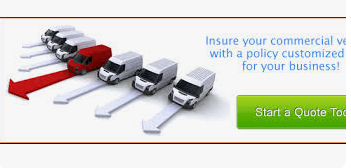I. Introduction
In today’s fast-paced world, owning a vehicle has become a necessity for many. However, with this necessity comes the responsibility of protecting yourself and your investment through auto insurance. At the heart of this process lies the crucial step of obtaining auto policy quotes. These quotes serve as your gateway to understanding the potential costs and coverage options available to you in the vast landscape of auto insurance.
An auto policy quote is essentially an estimate provided by an insurance company that outlines the cost of your potential auto insurance policy. It’s based on a variety of factors unique to you and your vehicle, giving you a preview of what you might expect to pay for coverage. The importance of obtaining multiple auto insurance quotes cannot be overstated. By comparing quotes from different providers, you can ensure that you’re getting the best possible coverage at the most competitive price.
In this comprehensive guide, we’ll delve deep into the world of auto policy quotes. We’ll explore how they’re calculated, what factors influence them, and how you can use this knowledge to your advantage. Whether you’re a first-time car owner or a seasoned driver looking to switch insurance providers, this article will equip you with the information you need to navigate the auto insurance landscape with confidence.
II. The Basics of Auto Policy Quotes
What is an Auto Policy Quote?
An auto policy quote is a detailed estimate provided by an insurance company that outlines the potential cost of your car insurance coverage. It’s important to understand that a quote is not a final price, but rather an educated projection based on the information you provide and the insurer’s current rates. Quotes allow you to compare offerings from different insurance providers without committing to a policy.
How Auto Policy Quotes are Calculated
Insurance companies use complex algorithms and statistical models to calculate auto policy quotes. These calculations take into account a wide range of factors, including your personal information, driving history, and details about your vehicle. The process involves assessing the level of risk you represent as a policyholder and determining a premium that reflects that risk while remaining competitive in the market.
Factors that Influence Auto Insurance Quotes
Several key factors play a role in determining your auto insurance quote. Understanding these can help you anticipate how changes in your life or driving habits might affect your insurance costs:
- Driving Record: Your history of accidents, traffic violations, and claims significantly impacts your quote. A clean driving record often leads to lower premiums.
- Vehicle Type and Age: The make, model, and year of your car affect your quote. Newer, more expensive cars typically cost more to insure, while vehicles with high safety ratings might qualify for discounts.
- Location: Where you live and park your car influences your quote. Urban areas with higher traffic and crime rates often result in higher premiums compared to rural areas.
- Credit Score: In many states, insurers use credit-based insurance scores as a factor in determining quotes. A higher credit score can often lead to lower premiums.
- Coverage Options: The types and amounts of coverage you choose will directly affect your quote. More comprehensive coverage will result in a higher premium.
- Deductible Amount: The deductible is the amount you agree to pay out of pocket before your insurance coverage kicks in. Higher deductibles generally lead to lower premiums, and vice versa.
By understanding these factors, you can better interpret the auto policy quotes you receive and make informed decisions about your coverage. In the following sections, we’ll explore each of these elements in greater detail, providing you with a comprehensive understanding of the auto insurance quoting process.
Certainly. Let’s continue with the next sections of the blog post:
III. Types of Auto Insurance Coverage
When seeking auto policy quotes, it’s crucial to understand the different types of coverage available. Each type of coverage addresses specific risks and situations, allowing you to tailor your policy to your needs. Here’s a breakdown of the main types of auto insurance coverage:
A. Liability Coverage
Liability coverage is the foundation of most auto insurance policies and is required by law in most states. It consists of two components:
- Bodily Injury Liability: This covers injuries you cause to others in an accident where you’re at fault.
- Property Damage Liability: This covers damage you cause to other people’s property, typically their vehicles.
When comparing auto policy quotes, pay attention to the liability limits offered. These are often expressed as three numbers, such as 100/300/100, which represents:
- $100,000 bodily injury coverage per person
- $300,000 bodily injury coverage per accident
- $100,000 property damage coverage per accident
B. Collision Coverage
Collision coverage pays for damage to your own vehicle resulting from a collision with another vehicle or object, regardless of who’s at fault. This coverage is typically optional but may be required if you’re financing or leasing your vehicle. When reviewing auto policy quotes, note that collision coverage usually comes with a deductible.
C. Comprehensive Coverage
Comprehensive coverage protects your vehicle from damage caused by events other than collisions. This includes theft, vandalism, fire, natural disasters, and encounters with animals. Like collision coverage, comprehensive is usually optional but may be required by lenders. Auto policy quotes for comprehensive coverage will also include a deductible.
D. Personal Injury Protection (PIP)
Personal Injury Protection, also known as “no-fault” coverage, pays for medical expenses for you and your passengers, regardless of who caused the accident. It may also cover lost wages and other related expenses. PIP is required in some states and optional in others.
E. Uninsured/Underinsured Motorist Coverage
This coverage protects you if you’re in an accident with a driver who either has no insurance or doesn’t have enough insurance to cover the damages. When comparing auto policy quotes, consider this coverage as an important safeguard against financial loss.
F. Additional Coverage Options
Many insurers offer additional coverage options that you might see in your auto policy quotes:
- Roadside Assistance: Covers services like towing, battery jumps, and locksmith services.
- Rental Car Coverage: Pays for a rental car while your vehicle is being repaired after a covered accident.
- Gap Insurance: Covers the difference between your car’s actual cash value and what you owe on your auto loan if your car is totaled.
IV. How to Get Auto Policy Quotes
Obtaining auto policy quotes has become easier than ever with the advent of digital technology. Here are the primary methods you can use to get quotes:
A. Online Quote Comparison Tools
Many websites offer tools that allow you to compare auto policy quotes from multiple insurers simultaneously. These platforms typically require you to enter your information once and then display quotes from various providers. While convenient, keep in mind that these tools may not include all available insurers or discounts.
B. Contacting Insurance Agents Directly
You can reach out to insurance agents representing specific companies to get auto policy quotes. This method allows for more personalized service and the opportunity to ask detailed questions about coverage options. Agents can often provide insights into discounts or coverage options that online tools might miss.
C. Working with Independent Insurance Brokers
Independent brokers work with multiple insurance companies and can provide quotes from various providers. They can offer personalized advice and help you navigate the complexities of different policies. This option combines the benefits of comparison shopping with personalized service.
D. Using Insurance Company Websites
Most major insurance companies offer online quoting tools on their websites. While this method requires you to visit multiple sites to compare quotes, it allows you to explore each company’s offerings in detail and may reveal unique coverage options or discounts.
E. Mobile Apps for Auto Policy Quotes
Many insurers and comparison services now offer mobile apps for obtaining auto policy quotes. These apps often provide a user-friendly interface and can be particularly convenient for getting quotes on the go. Some apps even allow you to purchase policies directly through your smartphone.
Regardless of the method you choose, it’s important to gather quotes from multiple sources to ensure you’re getting the best coverage at the most competitive price. In the next section, we’ll discuss what information you’ll need to have on hand when requesting auto policy quotes.
Certainly. Let’s continue with the next sections of the blog post:
V. What Information Do You Need for Auto Policy Quotes?
To receive accurate auto policy quotes, you’ll need to provide specific information about yourself, your vehicle, and your driving history. Having this information ready can streamline the quoting process and ensure you receive the most accurate estimates. Here’s what you typically need:
A. Personal Details
- Name: Your full legal name
- Age: Your date of birth
- Address: Your current residential address
- Occupation: Your current job title and employer
- Marital Status: Whether you’re single, married, divorced, or widowed
B. Vehicle Information
- Make and Model: The brand and specific model of your car
- Year: The year your vehicle was manufactured
- Vehicle Identification Number (VIN): A unique 17-character code assigned to your vehicle
- Safety Features: Information about airbags, anti-lock brakes, anti-theft devices, etc.
- Annual Mileage: An estimate of how many miles you drive per year
C. Driving History
- License Information: Your driver’s license number and the state where it was issued
- Accident History: Details of any accidents you’ve been involved in over the past 3-5 years
- Traffic Violations: Information about any tickets or moving violations in recent years
- Claims History: Details of any insurance claims you’ve filed in the past
D. Current Insurance Information
- Current Insurer: The name of your current auto insurance company
- Policy Details: Your current coverage types and limits
- Expiration Date: When your current policy is set to expire
E. Desired Coverage Types and Limits
- Coverage Options: Which types of coverage you want (liability, collision, comprehensive, etc.)
- Coverage Limits: How much coverage you want for each type
- Deductible Preference: How much you’re willing to pay out-of-pocket before your insurance kicks in
Having this information ready when requesting auto policy quotes can help ensure you receive accurate estimates and make the process much smoother.
VI. Understanding and Comparing Auto Policy Quotes
Once you’ve received your auto policy quotes, it’s crucial to know how to interpret and compare them effectively. This knowledge will help you make an informed decision about which policy best suits your needs and budget.
A. Breaking Down the Components of a Quote
A typical auto policy quote includes several key components:
- Premium: The amount you’ll pay for your insurance, usually expressed as a six-month or annual figure
- Coverage Types and Limits: A breakdown of each type of coverage included and the maximum amount the policy will pay for each
- Deductibles: The amount you’ll need to pay out-of-pocket before your insurance coverage kicks in
- Discounts Applied: Any savings applied to your quote based on your eligibility for various discounts
B. How to Read and Interpret Auto Insurance Quotes
When reviewing your auto policy quotes, pay attention to the following:
- Coverage Limits: Ensure that the coverage limits meet your needs and any legal requirements in your state.
- Deductibles: Higher deductibles usually mean lower premiums, but make sure you can afford the out-of-pocket expense if you need to file a claim.
- Exclusions: Look for any situations or circumstances that aren’t covered by the policy.
- Additional Features: Some quotes may include extras like roadside assistance or rental car coverage.
C. Comparing Quotes from Different Providers
When comparing auto policy quotes from different insurers, create a spreadsheet or table to help you visualize the differences. Here’s an example:
| Provider | Premium | Coverage Limits | Deductible | Discounts | Additional Features |
|---|---|---|---|---|---|
| Insurer A | $800/year | 100/300/100 | $500 | Safe Driver, Multi-Policy | Roadside Assistance |
| Insurer B | $750/year | 50/100/50 | $1000 | Good Student, Anti-Theft | None |
Remember, the lowest price isn’t always the best value. Consider the coverage limits, deductibles, and additional features when making your decision.
D. Red Flags to Watch Out for in Auto Policy Quotes
Be wary of these potential issues when reviewing auto policy quotes:
- Unusually Low Premiums: If a quote seems too good to be true, it might be. Extremely low premiums could indicate insufficient coverage.
- Missing Coverage: Ensure all the coverage types you requested are included in the quote.
- Unclear Terms: If any part of the quote is confusing or vague, don’t hesitate to ask for clarification.
- High-Pressure Sales Tactics: Be cautious of insurers who pressure you to make an immediate decision.
By understanding how to read and compare auto policy quotes, you’ll be better equipped to choose the right insurance policy for your needs. In the next section, we’ll discuss tips for getting the best auto policy quotes.
Certainly. Let’s continue with the next sections of the blog post:
VII. Tips for Getting the Best Auto Policy Quotes
Securing the best auto policy quotes requires a strategic approach. Here are some proven tips to help you obtain more favorable quotes:
A. Maintaining a Good Driving Record
Your driving history significantly impacts your auto policy quotes. Here’s how to maintain a good record:
- Obey Traffic Laws: Follow speed limits and traffic signals to avoid tickets and accidents.
- Avoid Distracted Driving: Never text while driving and limit other distractions.
- Take a Defensive Driving Course: Many insurers offer discounts for completing these courses.
B. Bundling Policies
Combining multiple insurance policies with one provider often results in significant discounts. Consider bundling your auto insurance with:
- Homeowners or Renters Insurance
- Life Insurance
- Umbrella Insurance
C. Increasing Deductibles
Opting for a higher deductible can lower your premium. However, ensure you can afford the higher out-of-pocket cost if you need to file a claim. For example:
| Deductible | Potential Premium Savings |
|---|---|
| $500 to $1000 | 10-15% |
| $1000 to $2000 | 15-20% |
D. Taking Advantage of Discounts
Insurance companies offer various discounts that can significantly reduce your premium. Always ask about available discounts when getting auto policy quotes. Common discounts include:
- Safe Driver Discounts: For maintaining a clean driving record over time.
- Good Student Discounts: For students maintaining high grades (typically a B average or higher).
- Multi-Car Discounts: For insuring multiple vehicles on the same policy.
- Safety Feature Discounts: For vehicles equipped with anti-theft devices, anti-lock brakes, or advanced safety features.
E. Regularly Reviewing and Updating Your Policy
Your insurance needs can change over time. Regularly reviewing your policy ensures you’re not paying for unnecessary coverage or missing out on new discounts. Consider reviewing your policy:
- Annually
- After major life events (marriage, moving, etc.)
- When you buy a new vehicle
VIII. Common Mistakes to Avoid When Getting Auto Policy Quotes
To ensure you get the most accurate and beneficial auto policy quotes, avoid these common pitfalls:
A. Providing Inaccurate Information
Honesty is crucial when seeking auto policy quotes. Providing inaccurate information may lead to:
- Inaccurate quotes
- Potential policy cancellation
- Claim denials
Always double-check the information you provide for accuracy.
B. Focusing Solely on Price
While it’s tempting to choose the lowest-priced quote, remember that the cheapest option isn’t always the best. Consider:
- Coverage limits
- Deductibles
- Company reputation
- Customer service quality
C. Not Understanding Coverage Limits
Misunderstanding your coverage limits can lead to financial exposure in the event of an accident. Ensure you understand:
- What each type of coverage protects
- The maximum amount your policy will pay for each type of coverage
- Any exclusions or limitations in your policy
D. Failing to Ask About Discounts
Many drivers miss out on potential savings by not inquiring about discounts. Always ask about:
- All available discounts
- Eligibility requirements for each discount
- How to qualify for discounts you’re not currently receiving
E. Neglecting to Read the Fine Print
The details matter in auto insurance policies. Pay close attention to:
- Policy exclusions
- Claim filing procedures
- Policy cancellation terms
If anything is unclear, don’t hesitate to ask your insurance agent for clarification.
By avoiding these common mistakes, you’ll be better positioned to secure auto policy quotes that accurately reflect your needs and provide the best value for your money.
Certainly. Let’s continue with the final sections of the blog post:
IX. Frequently Asked Questions About Auto Policy Quotes
To further clarify the process of obtaining and understanding auto policy quotes, let’s address some common questions:
A. How often should I get new auto policy quotes?
It’s recommended to shop for new auto policy quotes at least once a year. However, you should also consider getting new quotes when:
- Your current policy is up for renewal
- You experience a major life change (e.g., marriage, move to a new area)
- You purchase a new vehicle
- Your credit score significantly improves
- You’ve been claim-free for several years
B. Can I get auto policy quotes without providing personal information?
While it’s possible to get general estimates without personal information, accurate auto policy quotes typically require some personal details. However, reputable insurance companies will protect your information and use it solely for quoting purposes. If you’re concerned about privacy, consider:
- Using comparison websites that anonymize your data
- Asking insurers about their data protection policies
- Providing only the minimum necessary information for an initial quote
C. Why do auto policy quotes vary so much between providers?
Auto policy quotes can vary significantly due to several factors:
- Different Risk Assessment Models: Each insurer uses its own algorithms to assess risk and set prices.
- Varying Business Strategies: Some insurers may focus on certain types of drivers or vehicles.
- State Regulations: Insurance regulations can differ by state, affecting pricing.
- Discounts: Companies offer different discounts, which can significantly impact the final quote.
D. How long are auto policy quotes valid?
The validity period of auto policy quotes can vary by insurer, but typically:
- Most quotes are valid for 30 to 90 days
- Some insurers may offer quotes valid for up to 6 months
- Always check the expiration date on your quote
E. Can I negotiate my auto insurance quote?
While you can’t typically negotiate the base rate of an auto insurance quote, you can potentially lower your premium by:
- Asking about additional discounts you might qualify for
- Adjusting your coverage limits or deductibles
- Bundling multiple policies with the same insurer
- Improving your credit score or driving record over time
X. The Future of Auto Policy Quotes
As technology continues to advance, the landscape of auto policy quotes is evolving. Here’s a glimpse into what the future might hold:
A. Impact of Technology on Quote Processes
Emerging technologies are streamlining and personalizing the quoting process:
- AI and Machine Learning: These technologies are enabling more accurate risk assessment and personalized pricing.
- Blockchain: This could lead to more secure and transparent data sharing between insurers and customers.
- Internet of Things (IoT): Connected devices in vehicles could provide real-time data for more accurate quoting.
B. Usage-Based Insurance and Its Effect on Quotes
Usage-based insurance (UBI) is gaining popularity and could significantly impact how auto policy quotes are generated:
- Pay-Per-Mile Programs: Premiums based on actual miles driven.
- Behavior-Based Pricing: Rates adjusted based on driving habits monitored through mobile apps or in-car devices.
- Real-Time Risk Assessment: Quotes that update based on current driving patterns and behaviors.
C. Potential Changes in the Auto Insurance Industry
Several factors could reshape the auto insurance landscape and affect how quotes are generated:
- Autonomous Vehicles: As self-driving cars become more prevalent, liability and risk calculations may shift dramatically.
- Shared Mobility: The rise of car-sharing and ride-hailing services may lead to new insurance models and quoting processes.
- Customizable Policies: Insurers may offer more flexible, modular policies that allow customers to build coverage tailored to their specific needs.
XI. Conclusion
Understanding auto policy quotes is crucial for making informed decisions about your car insurance. By grasping the factors that influence these quotes, knowing how to compare them effectively, and staying informed about industry trends, you can ensure that you’re getting the best coverage for your needs at the most competitive price.
Remember these key points:
- Always shop around and compare quotes from multiple providers
- Consider factors beyond just the price, such as coverage limits and company reputation
- Take advantage of discounts and regularly review your policy
- Stay informed about technological advancements and industry changes that may affect your insurance options
By applying the knowledge and strategies outlined in this guide, you’ll be well-equipped to navigate the world of auto policy quotes with confidence. Whether you’re insuring your first car or reviewing your long-standing policy, understanding auto policy quotes is your key to securing optimal coverage and peace of mind on the road.




